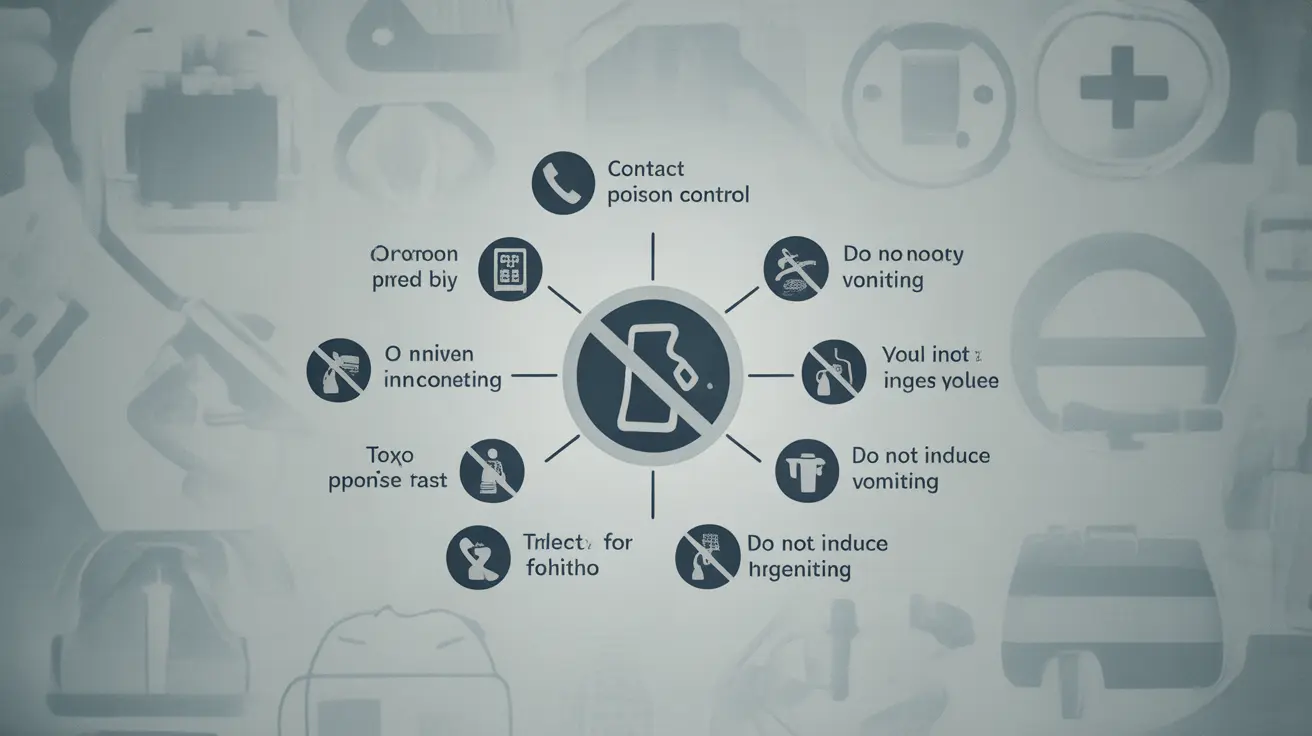When someone swallows something potentially harmful, the immediate impulse might be to make yourself throw up. However, medical experts strongly advise against self-induced vomiting as it can often cause more harm than good. Understanding the proper emergency response to toxic ingestion is crucial for everyone's safety.
This article will explore why inducing vomiting can be dangerous, what to do instead if you've ingested something toxic, and how to safely manage nausea when it occurs. We'll also discuss current medical recommendations and proper emergency protocols.
Why Self-Induced Vomiting Is Dangerous
Self-induced vomiting carries significant risks and can worsen the situation in cases of toxic ingestion. The act of forcing yourself to throw up can:
- Cause severe damage to your esophagus
- Lead to aspiration of stomach contents into your lungs
- Increase the damage from caustic substances
- Result in severe dehydration and electrolyte imbalances
- Create additional complications during emergency treatment
The Current Medical Stance on Ipecac Syrup
Medical professionals no longer recommend using ipecac syrup to induce vomiting. This represents a significant change from previous decades when ipecac was a common household remedy. Research has shown that the risks of using ipecac outweigh any potential benefits, and it's no longer recommended even in medical settings.
Proper Emergency Response to Toxic Ingestion
If you or someone else has ingested a potentially toxic substance, follow these critical steps:
- Call your local poison control center immediately
- Contact emergency services (911 in the US)
- Don't attempt to induce vomiting unless specifically instructed by medical professionals
- Save the container or substance for identification
- Remain calm and follow professional guidance
Safe Management of Nausea
When experiencing nausea, there are several safe and effective methods to find relief without resorting to forced vomiting:
- Deep breathing exercises
- Staying hydrated with small sips of clear fluids
- Using prescribed anti-nausea medications
- Trying ginger tea or other natural remedies
- Resting in a semi-upright position
Frequently Asked Questions
Is it safe to make yourself throw up after swallowing something poisonous?
No, it's not safe to make yourself throw up after swallowing something poisonous. This action can cause additional damage and complications. Instead, immediately contact poison control or emergency services for professional guidance.
Why do medical experts advise against using ipecac syrup to induce vomiting?
Medical experts advise against ipecac syrup because research has shown it can be ineffective and potentially harmful. The risks include delayed appropriate treatment, aspiration, and complications from the syrup itself.
What should I do if I or someone else accidentally ingests a toxic substance?
Immediately call poison control or emergency services (911). Don't try to induce vomiting unless specifically instructed by medical professionals. Keep the container or substance for identification and follow the emergency responder's instructions.
What are the health risks involved with self-induced vomiting?
Self-induced vomiting can cause serious health problems including esophageal tears, dental erosion, electrolyte imbalances, aspiration pneumonia, and in cases of toxic ingestion, can make the situation more dangerous by re-exposing tissues to harmful substances.
How can nausea be treated safely without trying to force vomiting?
Safe methods to treat nausea include taking prescribed anti-nausea medications, staying hydrated with small sips of clear fluids, using ginger products, practicing deep breathing exercises, and resting in a proper position. Always consult healthcare providers for persistent nausea.




